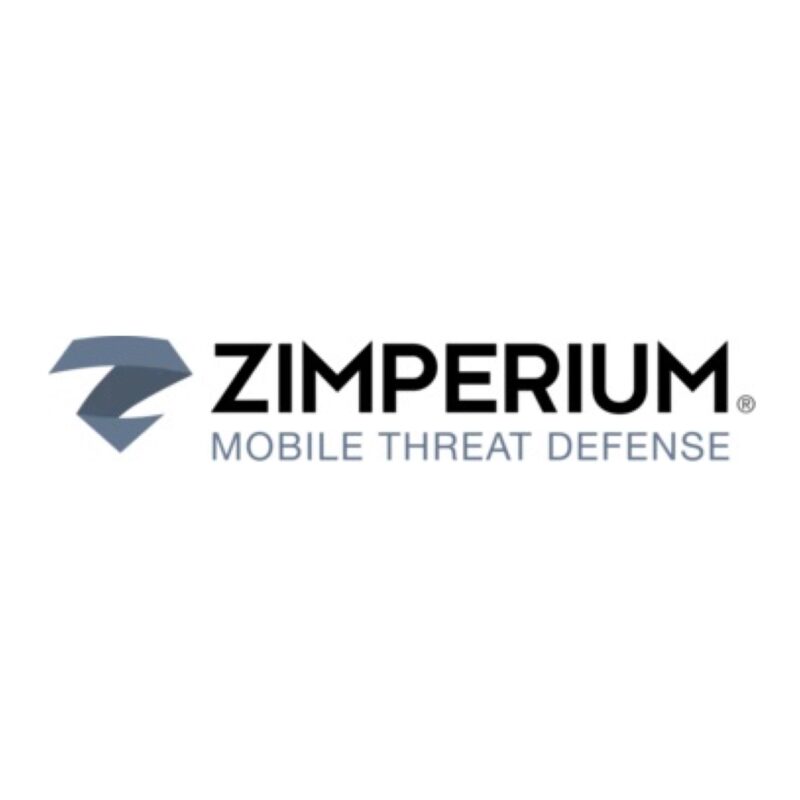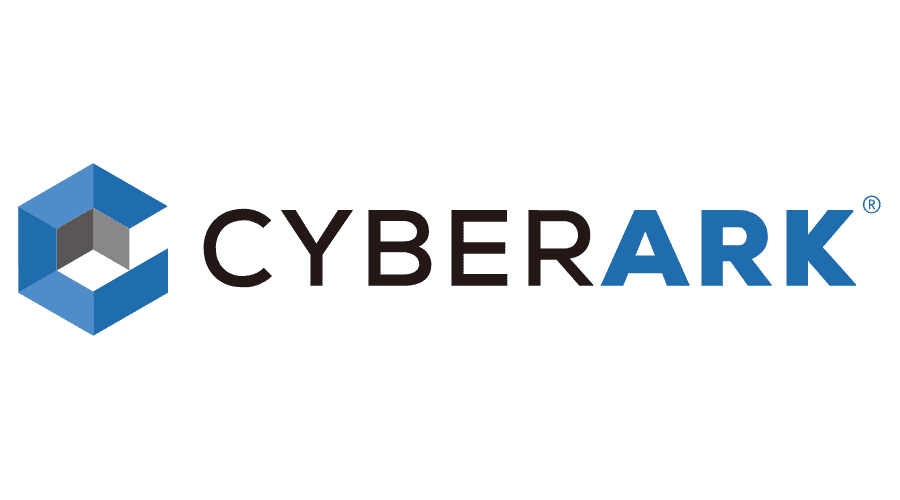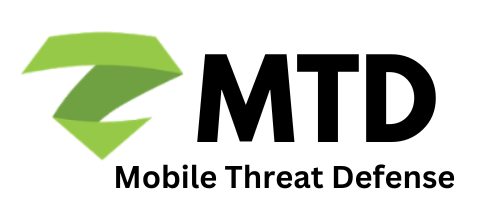ZIMPERIUM
Secure your data with the leader in Mobile Security

What is Mobile Threat Defense (MTD)?
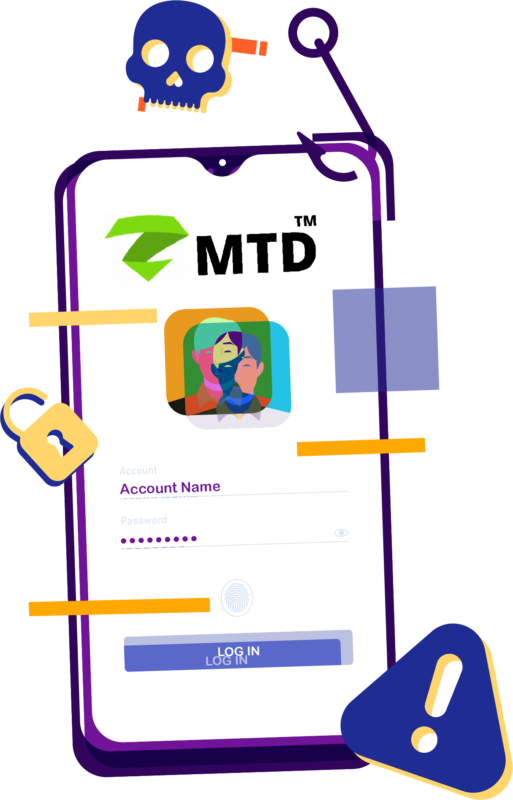
Zimperium Mobile Threat Defense (MTD)
-
Formerly known as zIPS – provides comprehensive mobile security (Endpoint security) for enterprises.
-
Designed to protect employees’ mobile devices from advanced persistent threats without sacrificing privacy or personal data.
-
Using Advanced Machine Learning, detects across device compromises, network attacks, phishing and content, and malicious apps.
Key Features

Machine learning protection stays ahead of the threats
Zimperium MTD’s sit’s securely in-device. Machine learning-powered detection secures devices against even the most advanced threats, while keeping security teams informed with critical data.

Privacy-first approach to mobile device security
Zimperium’s advanced mobile endpoint security solution enables enterprises to support and secure “bring your own” device policies alongside corporate-owned mobile devices without sacrificing the end user’s data privacy.

Integrate seamlessly, respond with accuracy
The unmatched forensics provided by Zimperium MTD prevents a single compromised device from turning into an outbreak.
Securing Mobile Endpoints with Zimperium
Zimperium Mobile Threat Defense (MTD) is a privacy-first application that provides comprehensive mobile device security for enterprises.
Key Benefits

Enable Risk-Based access on employee devices and bank tablets

Identify and quarantine devices with non-compliant apps

Block phishing and smishing attempts on-device and in real-time

Continuously monitor the risk posture of every device accessing the enterprise

Stop malware from stealing credentials and gaining access
Zimperium provides the only mobile security platform purpose-built for enterprise environments. With machine learning-based protection and a single platform that secures everything from applications to endpoints, Zimperium is the only solution to provide on-device mobile threat defense to protect growing and evolving mobile environments.
Case Study
Enhancing Mobile Device Security for the US Department of Defense
Mobile devices often store sensitive and classified data, making their protection a critical priority. Additionally, with increasing requirements from regulators companies are required to meet stringent cybersecurity standards, including those for mobile devices.
Source: Zimperium
The Challenge: Protecting Sensitive
Data in a Mobile World
An agency within the US Department of Defense sought an effective solution to secure their mobile devices, which had been approved for usage.
The agency had multiple unique requirements, like an on-premises console, including the need for comprehensive protection against all four mobile threat vectors:
- Device compromises.
- Network attacks.
- Malicious apps.
- Phishing.
Additionally, due to their responsibility for securing a high number of devices, an on-premises centralized management platform was needed to give detailed analytics and robust defense against both known threats and zero-day attacks.


Our Solution:
Zimperium MTD
Zimperium MTD Zimperium’s mobile security solution emerged as the ideal choice for addressing the agency’s security challenges and on-premises requirements.
Zimperium’s on-device detection capabilities provided real-time protection against all four mobile threat vectors, ensuring the agency’s mobile devices remained resilient to a wide range of threats.
The centralized management platform offered by Zimperium simplified the task of securing a large number of devices efficiently.
Zimperium’s solution provided continuous updates to protect against known threats and zero-day attacks, enhancing the agency’s overall mobile device security posture.
What Data’s At Risk?
Individuals who use their devices could jeopardize the following information:
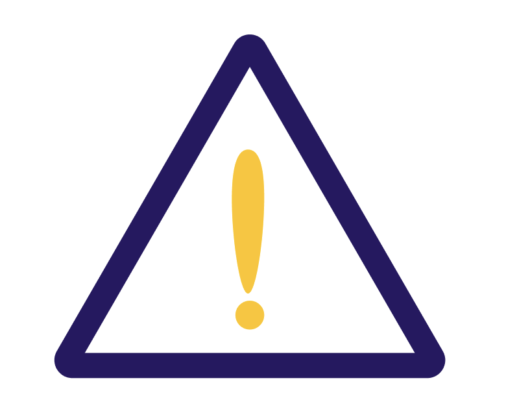
Sensitive and Classified Information
Sensitive and classified data related to national defense and security. If mobile devices were compromised, this sensitive data could be at risk of unauthorized access or theft.

Access to Government Systems
Mobile devices in the defense sector may have access to government networks and systems. Unauthorized access to these systems could potentially allow malicious actors to manipulate or steal sensitive information.

Operational Data
Military operations and mission-critical activities often rely on mobile devices for communication, coordination, and access to realtime operational data. Compromised mobile devices could disrupt these operations and compromise mission objectives.

Security Policies
Information about security policies and protocols within the public sector should be safeguarded to ensure compliance with regulatory standards and maintain a strong security posture.

Communication Logs
Mobile devices often contain call and message logs. These logs can contain sensitive customer or employee interactions and must be protected.

Mobile Device Information
Information about the mobile devices themselves, including their unique eSIM, operating systems, and security configurations, needs to be protected to maintain the security and privacy of providers.
Given the nature of the Department of Defense agency’s work, the protection of all these types of data is critical to national security and the overall effectiveness of Zero Trust operations. Therefore, implementing robust mobile device security measures, as outlined in the use case, was essential to mitigate the risks associated with potential data breaches or compromises.

